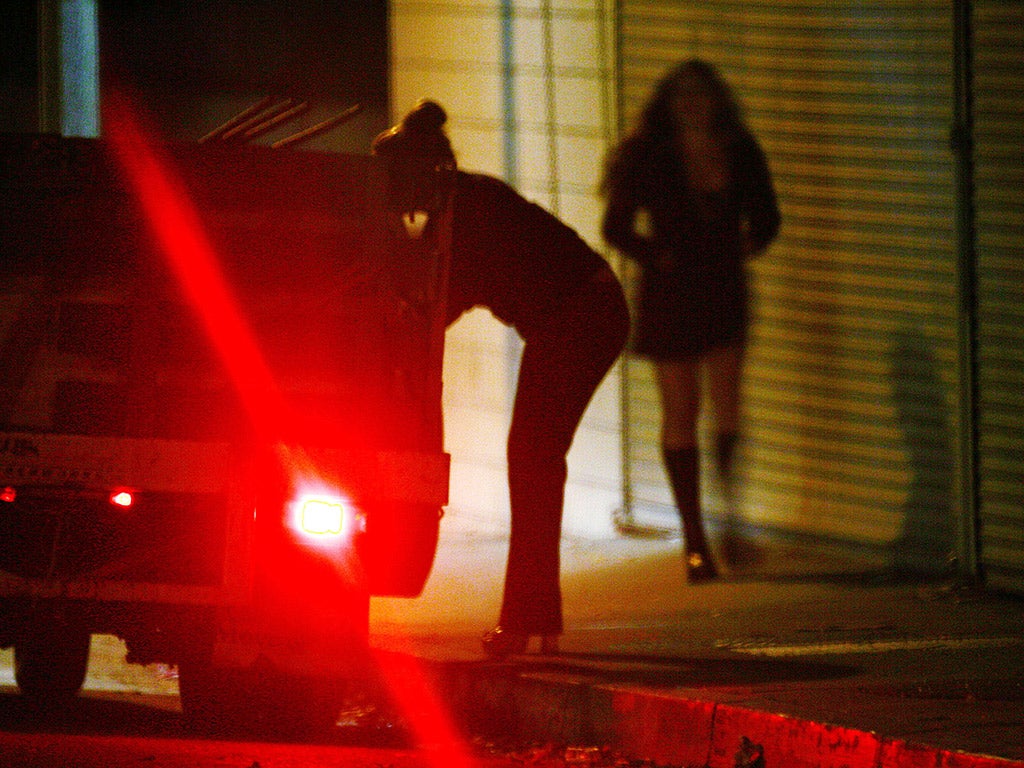Human trafficking report: Victims reveal devastating impact of abuse with 80 per cent suffering mental health problems
Study suggests thousands of victims of 'something akin to modern slavery' are suffering from post-traumatic stress, severe depression and anxiety

“If I don’t go ahead with it, I’ll be dead.”
With those chilling words, a victim of human trafficking explained to a nurse in a British hospital why she could not seek help and had to go ahead with an abortion arranged for her by a criminal gang.
The young woman later managed to escape life as a domestic slave in the UK and spoke to researchers carrying out one of the largest ever studies into the health of trafficking survivors.
The findings of the report, commissioned by the Department of Health, were stark: nearly 80 per cent of the women were still suffering from post-traumatic stress, severe depression or anxiety an average of 16 months after they were freed.
And while 30 per cent of the women were tricked or coerced to work as prostitutes – with the remaining 70 per cent used as forced labour or domestic servants – a total of 66 per cent had been raped.
Of the trafficked men, 40 per cent were still suffering from high levels of depression, anxiety and post-traumatic stress disorder (PTSD) an average of three months after escaping captivity, researchers from King's College London and the London School of Hygiene & Tropical Medicine found.
Dr Siân Oram, lead author of a paper about the study published in the American Journal of Public Health, said: “Because of the clear evidence that human trafficking has devastating and long-lasting effects on mental health, there is an urgent need for evidence on the effectiveness of psychological therapies and treatments to support this highly vulnerable population.”
Apart from the sex trade, people are usually trafficked to become servants in people's homes, agricultural or construction workers. Car washes and nail salons are also sometimes staffed by trafficking victims.
Dr Cathy Zimmerman, another of the researchers, said they could be forced to work for up to 16 hours a day.
"Trafficking for various forms of exploitation is very diverse. It appears to be somewhat prevalent," she said.
"I think the public has to give second thoughts to who is providing their services. I know I do when I go to the car wash.
"If you stop, you look, you think to consider whether the person providing your services is working in a situation that could be abusive ... that might be something akin to modern slavery, you may want to give a call [to the authorities]."
The Home Office estimated that up to 13,000 trafficked people were living in the UK in 2013, while it is estimated that 21 million people worldwide are used as forced labour following trafficking. Victims are usually either forced to go to a different country by criminal gangs or are tricked into thinking they will be able to begin a new life with an ordinary job.
The study involved speaking to 150 human-trafficking victims. Seven people who were invited did not take part for medical reasons, including high levels of psychological distress, serious physical illnesses or because they were in the advanced stages of pregnancy.
Twenty-one per cent of the men and 24 per cent of the women were still dealing with physical injuries, while 23 per cent of the women and eight per cent of the men reported sexually transmitted infections.
High levels of depression, anxiety, or PTSD symptoms were reported by 78 per cent of women and 40 per cent of men.
The paper added: “Twenty-nine per cent of women reported that they had one or more pregnancies while trafficked; 10 women reported having seen a midwife while trafficked and 12 women reported having had an abortion while trafficked."
A report published previously by the researchers included anonymous quotes from several of the victims, who were not identified.
The young woman forced to have an abortion was aged 18 to 21 and was simply too frightened of the people forcing her to work as a domestic slave to take up the nurse’s offer of help.
Another woman, aged between 22 and 25, who was trafficked to become a sex worker told of how she had tried to get help for years.
"I’ve been trying to address a situation with mental health for a prolonged period of time," she said.
"My doctor was aware of the fact that I was being made to take drugs, aware of the situation… referred me to online [cognitive behavioural therapy] course… I finally got the help that I needed when I moved out of the refuge... I’d been attempting to, to reach the help that I needed for, I would say over six years,” she told the researchers.
A woman in her 40s who was trafficked to work as a domestic slave insisted she had recovered but still found recalling her experiences difficult.
“I don’t want to talk about it. It upsets me. I don’t like talking about it, or speaking about it,” she said.
“It brings back a lot of memories, but it hurts me to speak about it, but obviously now I’m okay."
Kate Roberts, head of office at the Human Trafficking Foundation, said the study showed the need to provide greater support for victims.
“What these findings show is that support needs to be for a longer time than what the statutory framework currently provides if we want to help people meaningfully,” she said.
“Certainly we need something longer term than what is in effect a month-and-a-half of safety.”
A Home Office Spokesperson said: “The Government is committed to ensuring that victims of modern slavery and trafficking receive the support they need.
“Potential victims of modern slavery... have access to specialist tailored support, such as legal advice, accommodation, protection and independent emotional and practical help for a period of at least 45 days, while their case is being considered.”